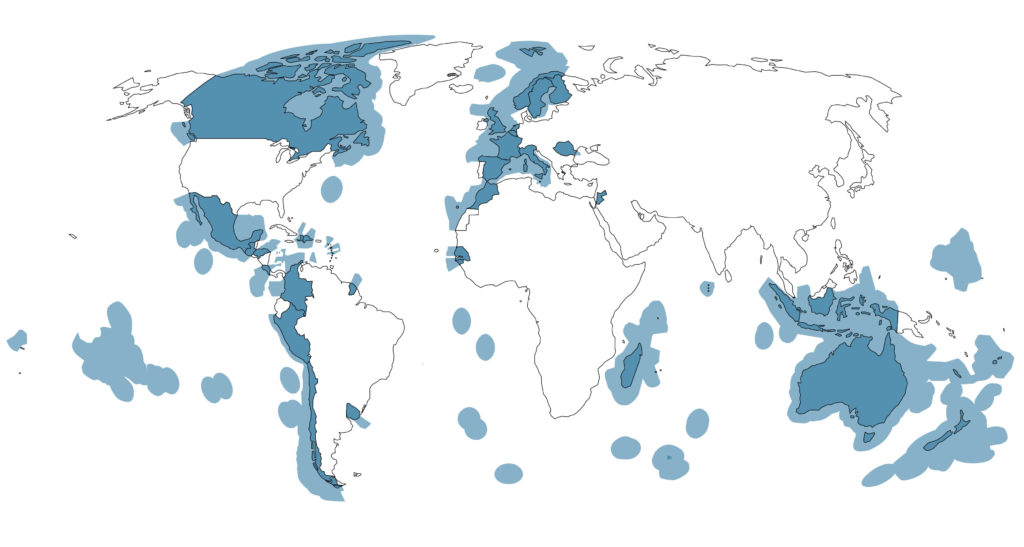COP : is a happy ending possible ?
The 196 countries, gathered in Glasgow over the last two weeks, reached an agreement on November 13th to close the Conference of the Parties (COP) 26. The States adopted the Glasgow Climate Pact, a series of decisions and resolutions based on the Paris Agreement.
The obvious climate crisis, the future disasters predicted by the scientists, the alarming and touching speeches of the most vulnerable countries and peoples did not lead to a final text that is equal to the challenges we face. This new COP has a sense of déjà vu, despite some encouraging advances.
November 16th, 2021,
National climate action plans far from the goal of 1.5°C
In the COP26 negotiation spaces, we no longer discuss whether or not there is a climate crisis, as it has been the case for too long in the past. It was time to discuss solutions for mitigating the effects of climate change and for adapting to it in the future, in particular by relying on nature itself.
For the first time in a COP final agreement, the Glasgow Climate Pact names fossil fuels as the problem and even mentions the phasing out of fossil fuel subsidies. This is a positive signal, but it remains insufficient in the face of the scientific imperative to not exceed 1.5°C for our planet to remain livable by the end of the century. According to the Intergovernmental Panel on Climate Change (IPCC), limiting the increase in global average temperature to 1.5°C requires a 45% reduction in carbon dioxide (CO2) emissions by 2030 compared to the 2010 level, or a 25% reduction by 2030 to keep within 2°C. We will have to wait until next year to find out if the goal of 1.5°C is still possible, for that countries will have to come back with much stronger ambitions.
The Nationally Determined Contributions of countries (NDCs), these commitments to reduce national greenhouse gas emissions, are the key elements for achieving the goal of 1.5°C. Yet, in Glasgow, five years after the Paris Agreement, the count is not there. Research carried out by Climate Action Tracker found that current plans for 2030 take us to 2.4°C of warming by the end of the century.
The gap between the targets and the final text is also exacerbated by the lack of funding for developing countries to build their capacities to mitigate and adapt to climate change when they have little responsibility for the current situation.
It is also regrettable that the final texts of the various COPs “invite” countries and do not “commit” them to act. Their limitations lie in the fact that they leave a lot of room for interpretation and appreciation by the countries as to the measures to be taken at the national level.
The Ocean is now anchored in the climate debates
If the Ocean is part of the problem, it is also part of the solution. The Ocean and its biodiversity are now considered to achieve climate objectives, and its role in regulating the climate is also recognized. Every year, more and more states consider taking actions to protect the Ocean in their national plans. This is a real step forward when you remember that before 2015, the Ocean was not even on the COPs agenda.
Nevertheless, it is clear from the speeches that among the ecosystems mentioned, including mangroves and seagrass beds, the planktonic ecosystem is still too little on the agenda, even though it represents the largest ecosystem on the planet and a considerable carbon sink for the climate balance.

Once again this year, despite the underestimated ambitions for the Ocean, there is hope. During the Ocean Action Day at the COP26, on November 5th, the Ocean & Climate Platform organized a great event to call on countries even more strongly, but also to share successful experiences in preserving the Ocean, demonstrating that actions are not only necessary but also possible.
The Ocean mentioned several times in the Glasgow Climate Pact
The Ocean was mentioned in particular as an ecosystem whose integrity must be ensured in the same way as forests or the cryosphere. The Glasgow Pact also invites the various stakeholders to consider how to integrate and strengthen actions for the Ocean in their existing mandates and work plans, and to report on these activities. It was also decided in Glasgow to hold an annual dialogue starting in June 2022 to strengthen States’ actions related to the Ocean, whereas the Paris Agreement only provided for a review every five years.
The success of the Because the Ocean initiative and the Ocean and Climate Platform
On the sidelines of COP26, the Tara Ocean Foundation is pleased with the success of the actions carried out by the Because the Ocean initiative and the Ocean and Climate Platform, of which it is a founding member.
On October 31st, on the eve of the opening of COP26, the third Because the Ocean declaration was signed in the presence of many high-level representatives. Launched in 2015 by a few countries on the schooner Tara, the initiative now has 41 signatory countries. In particular, the declaration calls for:
- strive for the acceleration of efforts to phase out greenhouse gas emissions from international shipping;
- further the development of clean offshore renewable energy sources, taking into account possible impacts on marine and coastal ecosystems;
- advocate for strengthening public and private sources of support for climate adaptation and mitigation in the ocean, including with multilateral development banks, climate funds, Official Development Assistance, and other international Financial Institutions;
- work with the Intergovernmental Panel on Climate Change (IPCC) to meet these goals and foster the exchange of knowledge and good practice.
The 41 signatories of the third Because of the Ocean declaration:

The Ocean and Climate Platform, together with the international “Ocean” community, also launched shortly before COP26 the “Ocean for Climate” declaration calling on governments to accelerate the deployment of ocean-based climate solutions.
What are the next meetings for the climate after COP26?
Beyond this COP and given, the next one which will take place in November 2022 in Egypt, the presidency held by the United Kingdom will have the difficult task of mobilizing the international community around a much stronger ambition, and in particular to bring China, the United States, and India back to the table with strong commitments. It will also be a matter of advocating for increased support for research on marine ecosystems that can help us solve the problems of tomorrow. Also, at the heart of the recommendations of the civil society, the need to strengthen the scientific capacities of developing countries for a better common and inclusive management of the Ocean.
Each major event, such as a Climate COP, raises hopes, and we often come away disappointed. The disappointing conclusions of this COP 26, unfortunately, echo other multilateral negotiation processes that also fail to achieve the desired or dreamed ambitions. This was the case with the recent failure of the negotiations of the Commission for the Conservation of Antarctic Marine Living Resources (CCAMLR) where each of the proposals for a Marine Protected Area was categorically refused by two States. Similarly, the Marine Biodiversity of Areas Beyond National Jurisdiction (BBNJ) international treaty is still not adopted even though discussions were initiated in 2012.
But what else do we have in hand to synchronize the orchestra of nations than these COPs? Civil society, young people, companies, NGOs must remain more than ever mobilized to alert, educate and even challenge leaders to raise their ambitions. These COPs, where planetary society meets, are unique opportunities to make people feel the desire and pressure to dispose of their climate and their planet in the face of opposing forces that become weaker every year.
The short-term stakes in 2022 at the One Ocean Summit in Brest, at the Our Ocean conference in Palau, or in Lisbon for the United Nations Conference on the Ocean, are crucial. Because when we address the issue of the Ocean, we address the issues of climate, biodiversity, food security, peace, globalization, and human rights. The Ocean is involved in all these areas, so it must be at the center of the concerns of our leaders and our fellow citizens.
By Romy Hentinger, Advocacy and international cooperation projects manager, Tara Ocean Foundation